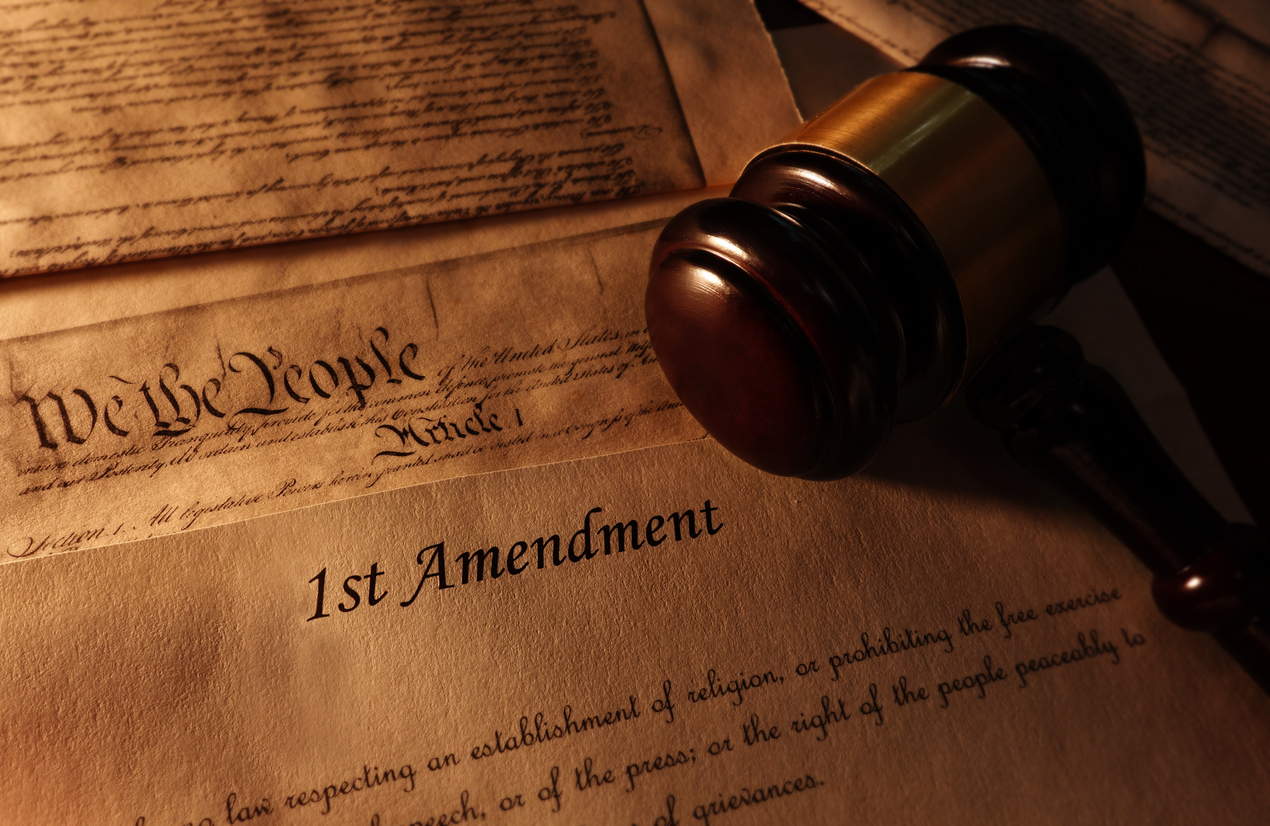What the IRS Really Said in a Recent Case About the Johnson Amendment
By Alexa Kawlewski
Recently, headlines flashed with news that the IRS now allows churches and their pastors to endorse political candidates. While not intentional, these headlines are misleading. A review of the case at issue will clarify what churches and pastors may and may not do.
National Religious Broadcasters and Intercessors for America, Sand Springs Church, and First Baptist Church Waskom filed a lawsuit against the Internal Revenue Service and its Commissioner on August 28, 2024.
The plaintiffs alleged “that the Johnson Amendment [a part of501(c)(3)] facially and as applied violates their First Amendment rights to the freedom of speech and free exercise of religion, their Fifth Amendment rights to due process of law and equal protection under the law, and the Religious Freedom Restoration Act.”
The Johnson Amendment, named for then-senator Lyndon B. Johnson, requires organizations, including churches, “to refrain from participating or intervening in campaigns for public office as a condition for their non-profit, tax-exempt status.”
On July 7, 2025, the parties filed a joint motion for entry of consent. A joint motion for entry of consent was used because both the plaintiffs, the National Religious Broadcasters and churches, and the defendants, the IRS and its Commissioner, agreed on the legal interpretation of the statute at issue. Once they agreed, there was no reason to continue a lawsuit where both sought the same outcome.
This motion, accepted by the court, prevents the IRS “from enforcing the Johnson Amendment against Plaintiff Churches based on speech by a house of worship to its congregation in connection with religious services through its customary channels of communication on matters of faith, concerning electoral politics viewed through the lens of religious faith.” What does this mean?
The parties argued that a house of worship and its pastor, when speaking in good faith in its usual manner, “neither participates nor intervenes in a political campaign.” Why? Because the ordinary meaning of those words concerns a different type of activity than that of the church in this instance.1 In this case, the communication between the pastor and congregation (in a religious service) is “neither [participation nor intervention], any more than . . . a family discussion concerning candidates.”
Therefore, if these pastors or the National Religious Broadcasters speak to their congregations in the context of a religious service on a matter of religious faith, then they have not violated the Johnson Amendment. A church and pastor, in this context, can speak about particular candidates for office and the morality or conformity of their political positions with religious doctrine.
An interpretation of the motion may also allow these pastors to make statements while preaching like: “Because our faith teaches X, we should all vote for candidate Y.” This would be more like a family conversation rather than an endorsement, at least in the eyes of the IRS under its current leadership.
It is important to remember that the outcome of the case binds only those parties to the case. This means the outcome technically only applies to the National Religious Broadcasters and the other plaintiffs, including the two churches, who filed suit. Presumably, the IRS’ willingness to agree to this interpretation of the Johnson Amendment in this case means they will not pursue a different interpretation with other pastors and churches.
Additionally, while the IRS has adjusted its interpretation of the Johnson Amendment, this does not result in a change in the law itself. Both parties, in their motion, requested a ruling on the unconstitutionality of the Johnson Amendment and injunctive relief to prohibit the Amendment’s enforcement. However, the case does not set binding precedent and only applies to the parties to this case. The IRS could decide to change its interpretation at any time. President Trump, with Executive Order 13798 in 2017, signaled his desire to repeal the Johnson Amendment. The IRS will, presumably, take this approach to enforcement as well.
For some churches and religious groups, this may green light changes in how pastors preach or communicate with their congregations about political candidates or political issues. However, the United States Conference of Catholic Bishops (USCCB) released a statement on July 8, 2025 to the contrary. The spokesman for the USCCB clarified that “[t]he IRS was addressing a specific case, and it doesn’t change how the Catholic Church engages in public debate.” The bishops reminded priests and Catholics that the Church “maintains its stance of not endorsing or opposing political candidates.”
In other words, the resolution of this case does not have an impact on how Catholic churches and their pastors approach politics and discuss political candidates with their congregations. Canon law has always prohibited certain political engagement by clerics, like holding public office and playing an active role in political parties.
The Johnson Amendment remains good law and its requirements remain in full force. Churches and pastors are still prohibited from engaging in political campaigning and endorsement. Nevertheless, the resolution of this case may be a sign that pastors and churches will not face direct scrutiny from the IRS on issues concerning politics and morality.
-----------------
1 The parties also made constitutional avoidance and Establishment Clause arguments.
“The doctrine of constitutional avoidance counsels in favor of interpreting the Johnson Amendment so that it does not reach communications from a house of worship to its congregation in connection with religious services through its usual channels of communication on matters of faith.”
“Interpreting the Johnson Amendment to reach such communications would create serious tension with the First Amendment’s Establishment Clause: That broad interpretation would treat religions that do not speak directly to matters of electoral politics more favorably than religions that do so...”
.png)




